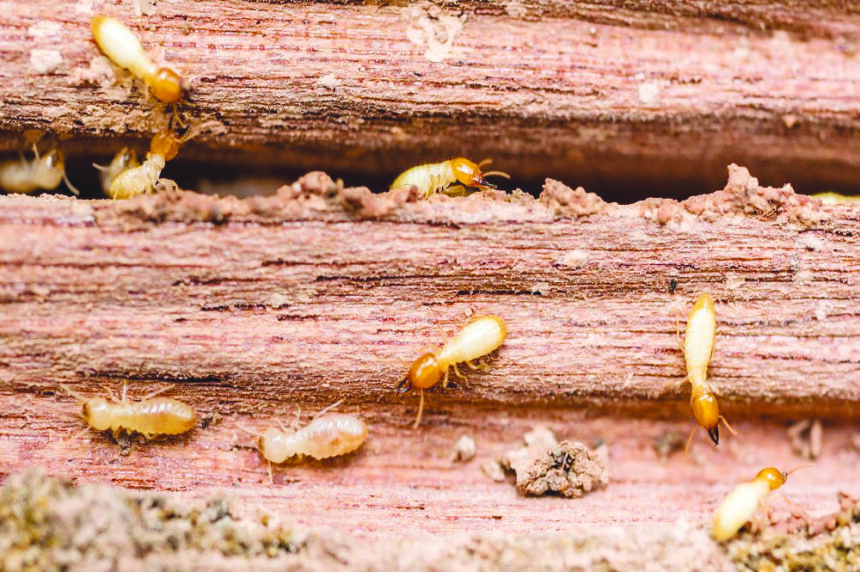Residents of Opuwo in the Kunene region are grappling with a devastating crisis of termite infestations in their homes.
The houses in question are among the 29 residences allocated by the National Housing Enterprise (NHE) in 2017.
Recently, one family experienced a terrifying moment when their sitting room ceiling collapsed while they were inside, highlighting the urgent need for action against the destructive pests.
It was indicated that numerous houses in Onduunjee location are suffering from similar damage, with roofs sagging and cupboards collapsing under the relentless assault of termites.
This alarming situation has left many families in the community feeling vulnerable, and fearing for their lives.
“With roofs raining down and cupboards crumbling, how can we ever feel safe at home? Every crack in the ceiling is a reminder that safety is no longer guaranteed,” said the victim, who opted for anonymity.
NHE spokesperson Mutonga Matali told this publication that despite previous termite treatments during construction, the infestations have persisted, leading to structural damage.
“Termite infestation was the main cause of this unfortunate development, despite the fact that termite poisoning was applied during construction. We have since devised measures to avoid a reoccurrence of termite infestation on affected houses,” he said.
The situation has escalated to a point where three houses have been identified for immediate roof replacement due to severe termite infestations. The enterprise confirmed that they are taking this matter seriously, and are working closely with stakeholders to address the issue.
“NHE is well-versed in this matter, and it’s receiving our undivided attention. We visited the site with all relevant stakeholders and a decision was made to remove and replace the roof structure of three houses that were found to have severe termite infestations,” said the spokesperson.
He further noted that the procurement process for this undertaking is being finalised.
The 29 houses were among the 53 houses that were to be built under the Mass Housing development programme in Opuwo.
In the meantime, the government has revived the Mass Housing programme to complete the remaining 24 houses in Opuwo and other towns, where the houses were not finished.
The government made a decision to provide affordable houses to the low and medium-income groups, thus reducing the price for the houses for ultra-low and low-income groups to as little as N$70 000 per house. This is lower than the actual construction cost of N$199 561, with a monthly instalment of N$550 per month.
The Mass Housing development programme was launched in November 2013 by former president Hifikepunye Pohamba as an intervention aimed at reducing the backlog in housing in the country, especially for the ultra-low, low and middle-income groups.
As stipulated in the Harambee Prosperity Plan and National Development Plans, the provision of affordable houses in Namibia should ensure that no one in the Namibian house is left out.



